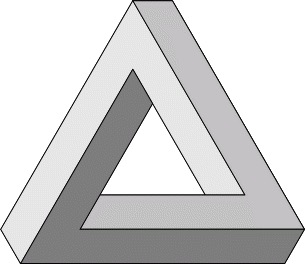Impossibility

"A spare ounce of acceptance seems to achieve more than any metric ton of impossibility."
Writer Molly Backes recently tweeted about what she calls “The Impossible Task." The Impossible Task might appear perfectly pedestrian unless considered by someone suffering from depression. Under the influence of depression, pretty much any aspiration might appear impossible to achieve. The lofty desire to refill a prescription or the Utopian urge to mow the lawn today might qualify as functionally impossible to achieve. Theoretically and even practically, these objectives might appear perfectly possible, but functionally, they might lie far beyond my reach. The old self-helpless adage which insists that the impossible just takes a little longer seems silly for anyone feeling as though the touted 'a little longer' amounts to infinity.
I fully understand that in this culture, my culture, we presume a positive outlook. Any welcoming embrace of any standard impossibility seems to qualify as evidence of the presence of a positive outlook, even should the objective fully qualify as theoretically or functionally impossible. We do not normally consider anyone exhibiting symptoms of positive outlook delusional, but plucky. They might seem crazy, but they're our kind of crazy and we revere their enthusiasm if not always their results. We remind ourselves of all the achievements that were once considered impossible and we warmly anticipate seeing another former impossibility manifest like magic before our eyes.
Those who respect the boundaries of the possible are considered slackers. Everyone on the project team well-understands this need to appear plucky when they agree to meet a future deadline everyone well-understands will not be met, if only because it cannot possibly be met. They agree anyway, and even experience exhilaration at being blessed by belonging to this enthusiastic team. The sponsoring executive leaves the room well satisfied that the team is properly motivated, for if we believe the mythology, all executives rise to their lofty positions riding impossibilities, rather like valkyries mounted on flaming horses. We firmly believe the mythology for it's all we have to believe in, for we must believe in it or be expelled from belonging anywhere. One must always appear plucky, itching for a fight with some entrenched impossibility.
Later, we'll collect our losses and wander off in the general direction of another impossibility, for what else could render meaning to life? We do not seem to aspire to be merely (notice how I said "merely) cogs feeding any well-functioning wheel, but paradigm-shifters. We seem perfectly patient to a point, willing and generally able to wait for the duration of the little longer that impossibilities demand. We look down our noses at all those not dedicated to pushing some envelope. Pursuing impossibilities seems to perfectly satisfy some desire to be seen as better than we are while also reconfirming that we mostly are not.
Molly Backes suggests that we might give ourselves credit where credit is clearly due, even if none of our accomplishment ever once threatened any status quo. Good does not always come in explosive packages. Some old status quos (most, in fact) need no taking down. Few of us will ever even distantly resemble any world-changing historical figure and none of us really need to aspire to resemble them. We're finer than we suspect ourselves as being. At some point, the 'little longer' the self-helpless insist that the impossible requires equates to infinity, which seems a godsend to those too familiar with any brick wall repelling our intentions. A spare ounce of acceptance seems to achieve more than any metric ton of impossibility.
[Editor's note: Shortly after David wrote that last sentence, a squad of visor-helmeted goons broke through the front door of The Villa Vatta Schmaltz High and spirited him away to an undisclosed location. His attorney shortly thereafter received notice that he was being indefinitely held under a statute forbidding anti-cultural utterances, specifically, for refusing to believe in impossibilities. According to the statute, anyone exhibiting a refusal to believe in impossibilities becomes an enemy of the state, the state's survival being entirely dependent upon broad belief in utter impossibilities. Arresting authorities have announced no arraignment date.]
©2018 by David A. Schmaltz - all rights reserved


